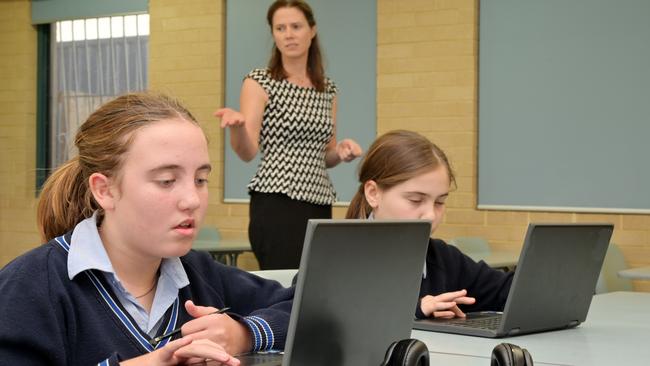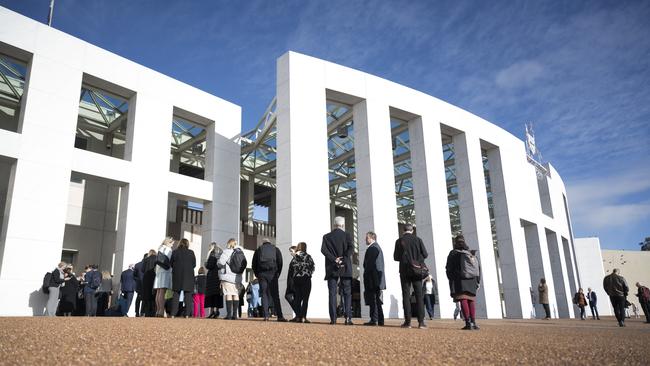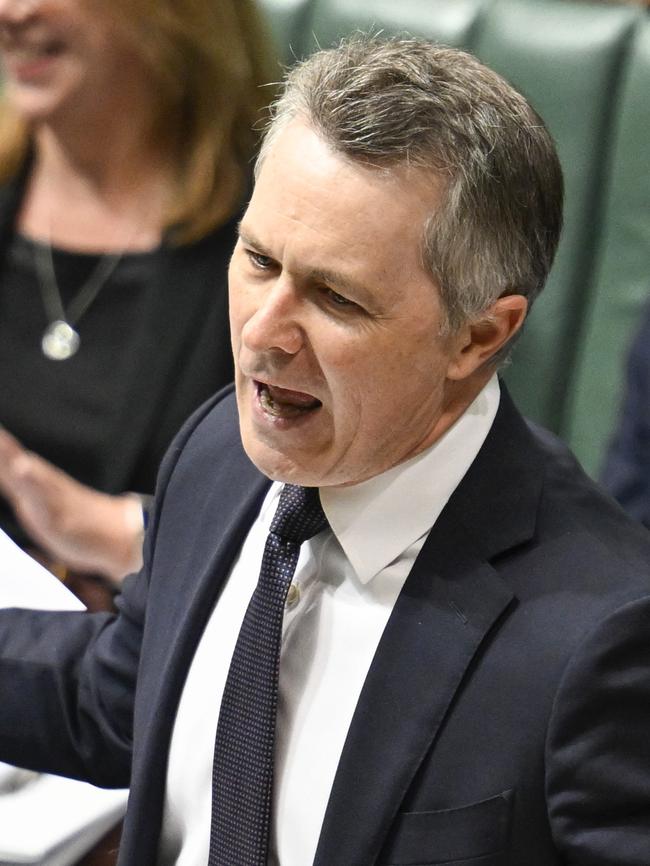School students’ grasp of politics is slipping to 20-year-low
Just over a third of year 10 students can say how a bill becomes law in Australia, as their knowledge and understanding of the nation’s democracy, political systems and civic processes hits its lowest levels since 2004 | TAKE THE QUIZ

Just over a third of year 10 students can say how a bill becomes law in Australia, as their knowledge and understanding of the nation’s democracy, political systems and civic processes hits its lowest levels since 2004.
Twenty-eight per cent of year 10 students and 43 per cent of year 6 students met proficiency levels for civics and citizenship, which includes an understanding of the country’s history and identity, and political and legal systems. These results are substantially lower than the last assessment in 2019 for both year groups, according to ACARA’s 2024 National Assessment Program, which assesses the civics and citizenship knowledge of school students over time.
Students from more than 600 schools nationally answered questions based on the Australian Curriculum, with 36 per cent of year 10 and 25 per cent of year 6 students successfully answering the question: “Who must sign a bill before it becomes an act of parliament and then a law in Australia?”
Twenty-five per cent of Year 10 students and 14 per cent of Year 6 students could determine the “reasons for or against the removal of colonial statues”, which was considered a difficult question. Those students would have determined that the statements “Celebrating these figures may be offensive to some Australians, such as First Nations people” and “These statues misrepresent Australian history by highlighting the role of dominant figures” were in the “For” category.

More than half of year 10 students know what “contestability” – an important concept in the study of history – means.
The report, carried out on behalf of all education ministers, also found that year 10 students had less interest in all civic issues, including Australian politics since 2019, particularly environmental issues. Year 6 students were significantly more interested in what was happening in other countries rather than in their local community.
To be proficient, year 10 students should understand the functions and features of the political system, the reason for compulsory voting, key features of the justice system, the role of media in democracy, and the specific responsibilities of Australian citizenship, for example.
Year 6 students should be able to identify the main role of the prime minister, identify historical figures of the 19th century and understand the concept of compulsory voting.
The report found large differences in achievement based on state – with the Northern Territory having the lowest percentage of proficient students in both year 6 and year 10 (18 per cent and 27 per cent respectively), and the ACT having the highest.
Achievement was also much higher for students with parents in senior manager and professional groups, with four in 10 of those year 10 students being proficient.
A survey of the same students showed that since 2019, year 10 students were significantly more distrusting of law courts, the police, the media and social media. Year 10 students who used the internet for news had higher levels of success in civics and citizenship, while those who “frequently shared content about political or social issues online” tended to have lower levels of achievement.


Education Minister Jason Clare said he had already improved aspects of civics and citizenship in schools.
“This is why I’ve boosted funding for school students to get out of the classroom and visit Parliament House and the War Memorial,” Mr Clare said. He noted the report showed large declines in excursions to parliaments or law courts since 2019.
“It’s also why we’ve invested extra funding to give teachers more tools to teach civics education in the classroom,” Mr Clare added.
“We need more young people to understand how our democracy works and want to be a part of it.”
Earlier this month, the Joint Standing Committee on Electoral Matters called for mandatory civics lessons for all students in years 11 and 12, which the federal government is “considering”. He said the Liberal government had developed and signed off on the current curriculum.
Opposition education spokeswoman Sarah Henderson called the results “alarming” and “another example of how our education system is failing young Australians under the Albanese government”.
“The Education Minister Jason Clare can’t simply say he wants more students to visit Canberra,” Senator Henderson said.
“We need a knowledge-rich curriculum which prioritises literacy and numeracy and other fundamentals such as a deeper knowledge of civics and citizenship.
“Only a Dutton government will lead the reforms to ensure classrooms are places of education not indoctrination.”
ACARA chief executive Stephen Gniel said it was “encouraging” that most students rated citizenship behaviours such as learning about Australia’s history as “important”.




To join the conversation, please log in. Don't have an account? Register
Join the conversation, you are commenting as Logout